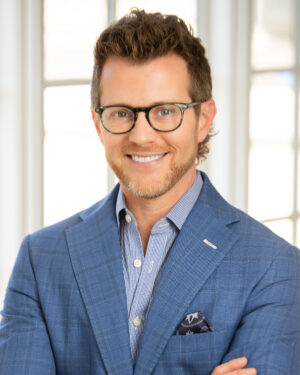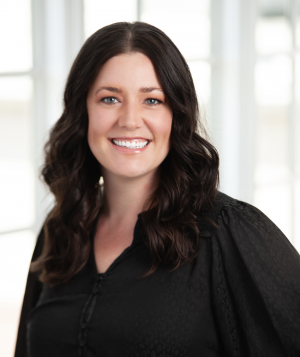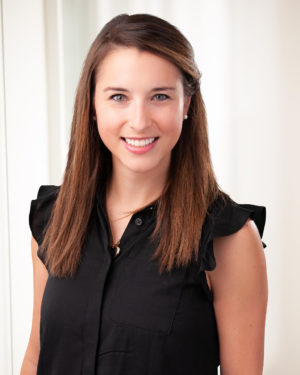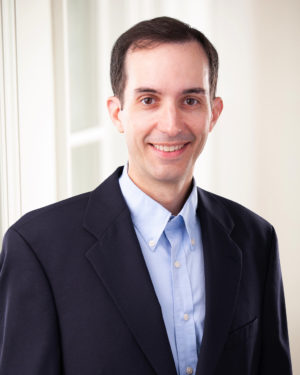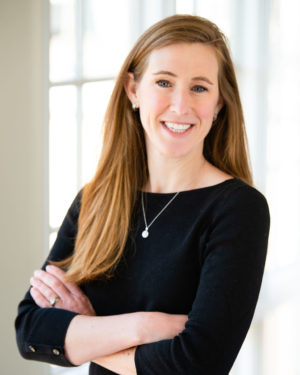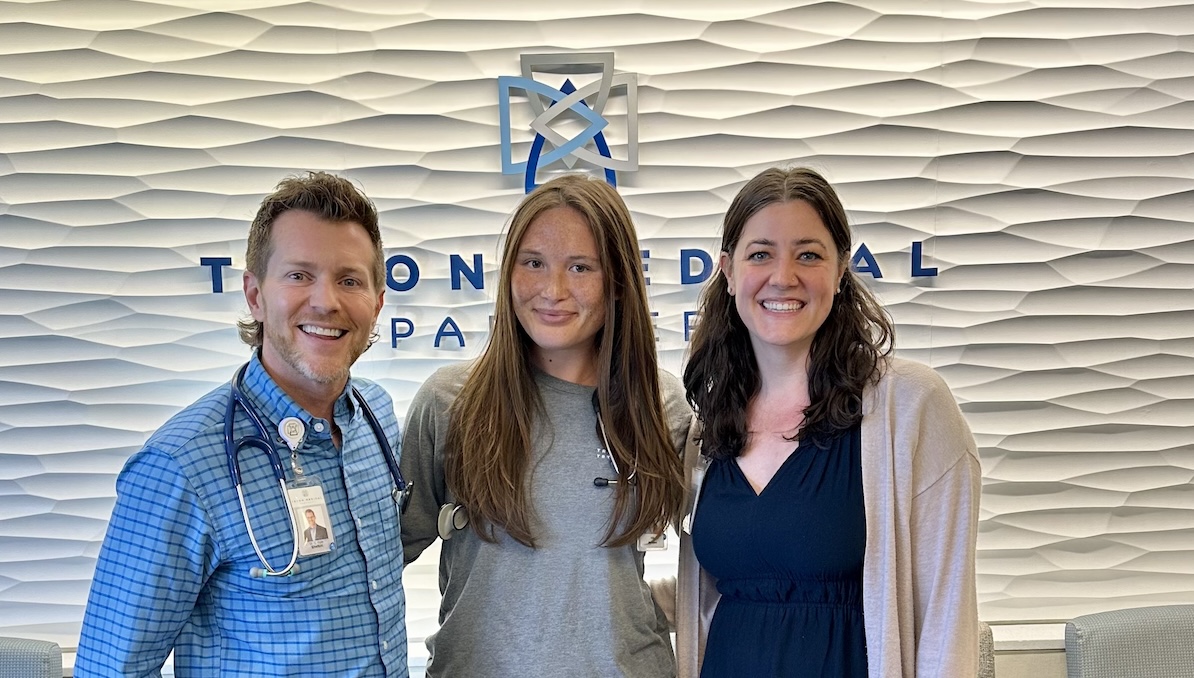
When Lily Suyao and Chris Hoefling first stepped into Tryon Medical Partners‘ busy primary care offices, they were seeking hands-on healthcare experience to confirm their career aspirations. Little did they know that their time at Tryon would transform them from curious college graduates into confident healthcare professionals ready to embark on advanced medical education. Now, as they prepare for their next chapters—Lily heading to PA school and Chris to medical school—they reflect on the time that shaped their professional journeys and the unique benefits of starting their careers in primary care.
Finding their way to Tryon
Although both Lily and Chris followed different paths to the Tryon Medical Partners medical assistant intern role, each arrived seeking valuable patient care experience that would prepare them for future careers in healthcare.
“I was struggling to find opportunities to work in patient care during my senior year at UNC Charlotte, where I played soccer,” Lily shares. “Tryon was one of the only places with a training program like this.” Lily began as the second MA intern at Tryon, working for two months before returning to complete her final year of college. After graduation, she transitioned to working at Tryon full-time.
For Chris, personal connections opened the door. “I knew Dr. Tina Kennelly and coached her son and my brother on a baseball team,” he explains. After reaching out to inquire about opportunities, Dr. Kennelly connected him with Dr. Robert Bowen, setting him on a path that would confirm his medical aspirations.
The comprehensive world of primary care
At Tryon, both Lily and Chris experienced immersive roles in primary care that provided valuable insight into the full spectrum of healthcare.
As a float MA intern, Lily had the unique opportunity to work with multiple clinicians across the practice. “I’ve worked with all of the doctors, NPs, and PAs, and it’s been a great learning experience adapting to different clinicians,” she explains. “Every week is something new—from physicals and wellness visits to acute needs. I’m constantly learning.”
Lily particularly values her time working with PA-C Tristan Lunde in primary care. “She’s taught me so much and her fast-paced workflow is so fun. I definitely think that at least for a couple of years, I want to work in primary care. It gives you a great foundation in healthcare and exposes you to everything.”
Chris’ experience was more focused, working primarily with Dr. Bowen in internal medicine. “My job is to make everyone else’s job easier,” Chris says. “I spend my days communicating with patients, rooming patients, discharging patients, and handling paperwork.”
What distinguished Chris’ experience was Dr. Bowen’s commitment to education. “He considers mentorship as much a job as his clinical work,” Chris reflects. “He is great at pulling me into rooms during patient visits and walking me through what it all means, and pointing out what to look out for. It’s the best way to prepare for the field.”
Moments that confirmed their calling in primary care
For both Lily and Chris, working in primary care at Tryon cemented their desire to pursue advanced healthcare careers.
Lily initially considered sports psychology but discovered a passion for broader medical practice at Tryon. “After going through different healthcare fields, I realized I wanted to practice a wider range of medicine,” she says. “Someone mentioned PAs to me, and the whole profession interested me. After my first summer at Tryon, I really enjoyed it, and that solidified my desire.”
Chris found his path through exploration. “In college, I took classes to try different things and went through different jobs,” he shares. “The summer after my sophomore year, I shadowed Dr. Kennelly at Tryon. I could see myself doing it, and I learned a lot. That really pushed me more toward medicine.”
The comprehensive nature of internal medicine provided Chris with exposure to diverse patient cases and medical challenges. Working alongside Dr. Bowen, he witnessed firsthand how primary care physicians serve as the first point of contact and coordinators of patient care—skills he hopes to carry into his own practice.
Lessons from primary care: beyond the clinical skills
Both Lily and Chris emphasize that their time in primary care at Tryon taught them as much about the human side of healthcare as the clinical aspects.
“The biggest lesson I learned is that as much as it’s about the medicine, it’s also about how you communicate with people and grow relationships,” Lily reflects. “It’s about fostering trust. Not just making sure you’re doing the correct steps, but making patients feel emotionally safe and supported. I’ve really looked to the clinicians and I have seen that they do a great job of it.”
This lesson is particularly vital in primary care, where clinicians often build long-term relationships with patients and families. “In primary care, you’re not just treating an illness—you’re caring for the whole person over time,” Lily adds. “How can I bring that into my future as a PA?”
For Chris, Dr. Bowen’s mentorship went beyond clinical skills to encompass the art of primary care medicine. “In a literal sense, I’ve learned a lot about medicine—one of the first things Dr. Bowen showed me was how to read an EKG,” Chris says. “But I’ve also seen how great he is at time management. Even if he takes longer than expected with a patient, he is able to recover. He taught me that working in medicine means creative problem solving.”
This ability to adapt and prioritize is crucial in primary care settings, where physicians like Dr. Bowen must be prepared to address everything from routine check-ups to unexpected acute concerns—all while maintaining the patient schedule and quality of care.
The primary care advantage: variety, relationships, and learning
When asked about their favorite aspects of working at Tryon’s primary care practice, both MA interns point to the variety of cases, the relationships formed, and the continuous learning opportunities.
“My favorite part of Tryon is the people—these are some of my good friends, and all of the clinicians are so kind,” Lily shares. “All the nurses and MAs helped me when I didn’t know anything, and I continue to learn from them every day.”
She particularly values how primary care clinicians at Tryon take time for teaching despite full schedules. “All of the doctors, PAs, and NPs are so involved in helping us learn and not just focused on the administrative and clinic side. I’ve shadowed Dr. Elizabeth Barnhardt Kirkland a few times and she’s a brilliant mentor. Everyone offers me tips—Dr. Ryan Shelton even let me give him his flu shot!”
Chris echoes this sentiment but emphasizes the patient diversity in primary care: “I’ve definitely met a lot of patients and have loved interacting with a wide variety of people from different walks of life.” This diversity of patients and conditions in primary care has provided both MA interns with a comprehensive foundation that will serve them well in their future specialties.
Looking ahead with primary care foundations
As Lily prepares to start PA school and Chris heads to medical school, both acknowledge the challenges ahead while expressing gratitude for the foundation that primary care experience at Tryon has provided.
“It’s a little intimidating,” Lily admits. “PA school is a different beast from working in a clinic. But I’m ready to take that next step and dive in to learn in a different capacity.”
Chris shares similar feelings: “It’s a lot of stress knowing I’m going to have to put in a lot of work in medical school, but this experience gave me time to see healthcare in the real world. No one says medical school is easy, but I’m ready for it.”
As they prepare for their next chapters, both Lily and Chris carry with them not just clinical knowledge but the values of patient-centered care and the impact of meaningful mentorship—lessons from primary care that will shape their approach to healthcare for years to come.
Regardless of what they ultimately choose to specialize in, the comprehensive experience they’ve gained at Tryon Medical Partners has equipped them with a holistic understanding of medicine that sees the patient first—perhaps the most valuable lesson of all.

